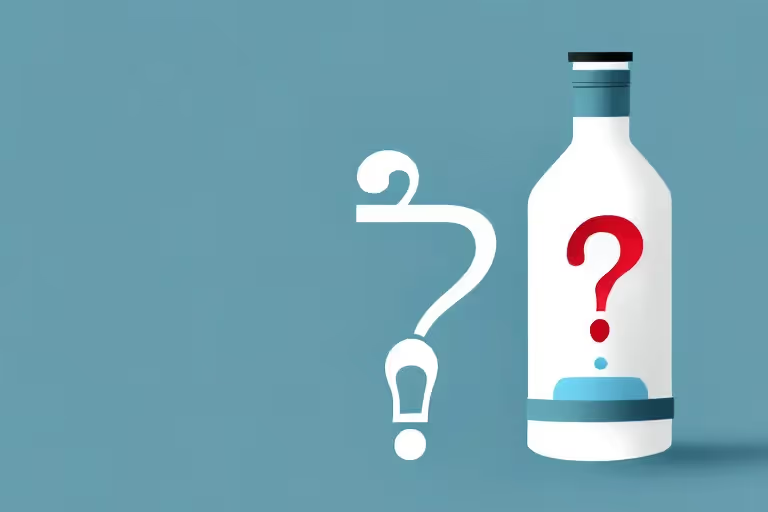In today's fast-paced world, it's not uncommon to feel overwhelmed and anxious. The pressures of daily life can take a toll on our mental and emotional well-being. But fear not, for there is a powerful tool that can help you find peace and calm amidst the chaos: prayer. Prayer has been a source of solace and strength for centuries, offering comfort and hope to those who seek it. In this article, we will explore the profound impact of prayer on managing anxiety and uncover various ways you can incorporate prayer into your daily routine. So, let's dive in and discover the transformative power of prayer for anxiety relief.
Understanding Anxiety: Causes and Symptoms
Anxiety is a complex emotion that can manifest in various ways. It is often characterized by excessive worry, fear, and a sense of unease. Understanding the causes and symptoms of anxiety is crucial in finding effective ways to cope with it. While the exact causes of anxiety may vary from person to person, certain factors like genetics, brain chemistry, and life experiences can contribute to its development.
Anxiety can be triggered by a multitude of factors. For some individuals, a genetic predisposition may make them more susceptible to developing anxiety disorders. Studies have shown that certain genes can influence the risk of developing anxiety, although the specific genes involved are still being researched.
Brain chemistry also plays a significant role in anxiety. Neurotransmitters, which are chemical messengers in the brain, regulate our emotions and moods. Imbalances in neurotransmitters such as serotonin, norepinephrine, and gamma-aminobutyric acid (GABA) have been linked to anxiety disorders. These imbalances can disrupt the normal functioning of the brain, leading to the onset of anxiety symptoms.
Life experiences and traumatic events can also contribute to the development of anxiety. Childhood trauma, such as physical or emotional abuse, neglect, or witnessing violence, can have long-lasting effects on mental health. These experiences can shape the way we perceive and respond to stress, increasing the likelihood of developing anxiety later in life.
Recognizing the symptoms of anxiety is essential for seeking help and finding relief. In addition to the commonly known symptoms such as racing thoughts, restlessness, irritability, difficulty concentrating, and physical manifestations like increased heart rate and shallow breathing, anxiety can also manifest in less obvious ways.
For some individuals, anxiety may present as excessive worrying about everyday activities or events. They may constantly anticipate the worst-case scenarios, which can lead to a persistent state of fear and unease. Others may experience social anxiety, which is characterized by an intense fear of social situations and a fear of being judged or embarrassed by others.
Physical symptoms of anxiety can vary from person to person. Some individuals may experience frequent headaches, muscle tension, or stomachaches. Others may have difficulty sleeping, experiencing insomnia or restless nights due to racing thoughts and a sense of unease.
If you resonate with any of these symptoms, know that you are not alone. Millions of people around the world struggle with anxiety, but there is hope for finding relief. Seeking professional help from a therapist or counselor can provide valuable support and guidance in managing anxiety.
Additionally, self-care practices such as regular exercise, mindfulness meditation, and engaging in activities that bring joy and relaxation can also help alleviate anxiety symptoms. It's important to remember that everyone's journey with anxiety is unique, and finding the right combination of strategies that work for you may take time and experimentation.
By understanding the causes and symptoms of anxiety, individuals can empower themselves to take control of their mental health. With the right support and tools, it is possible to manage anxiety and lead a fulfilling life.
The Power of Prayer in Managing Anxiety
Prayer is not merely a religious ritual; it is an avenue for connection with the divine and a means to find solace in times of distress. Through prayer, we can surrender our worries and fears to a higher power, knowing that we are not alone in our struggles. Numerous scientific studies have explored the impact of prayer on mental health, and the results are fascinating.
Studies have shown that prayer can reduce anxiety levels, lower stress hormones, and increase feelings of peace and calm. It can provide a sense of purpose and remind us that there is something greater than ourselves at work. By incorporating prayer into our lives, we open ourselves up to a supportive and loving energy that can guide us through even the darkest of times.
Different Types of Prayers for Anxiety
Prayer is a deeply personal and intimate practice, and there are various ways to approach it. Whether you follow a specific religious tradition or hold spiritual beliefs, there are prayers that can bring comfort and serenity to your anxious mind.
Christian Prayers for Anxiety
For those who follow the Christian faith, prayers such as the Serenity Prayer and the Prayer of Saint Francis can be particularly powerful in managing anxiety. These prayers emphasize the surrender of our fears and worries to God while seeking guidance, courage, and peace.
Buddhist Prayers for Anxiety
Buddhist traditions offer a wealth of wisdom and practices to cultivate inner peace and alleviate anxiety. Chanting mantras such as "Om Mani Padme Hum" or reciting the Metta Sutta, also known as the Loving-Kindness Prayer, can bring tranquility and compassion to the anxious mind.
Islamic Prayers for Anxiety
In Islam, prayer is an integral part of daily life and serves as a means of connecting with Allah. Seeking comfort through recitation of verses from the Quran, performing Salah (prayer), and offering sincere supplications can provide solace and alleviate anxiety.
How to Incorporate Prayer into Your Daily Routine
Now that we have explored the various prayers for anxiety, it's time to discover how to incorporate prayer into your daily routine. Finding the right time and place for prayer is essential in establishing a consistent practice that brings peace and calm to your life.
Finding the Right Time and Place for Prayer
Choose a time of day when you can dedicate a few moments to prayer without distractions. It could be early morning, during a lunch break, or before bedtime. Find a quiet and serene space where you feel comfortable and can focus your attention inward.
Making Prayer a Habit
Consistency is key when it comes to incorporating prayer into your daily routine. Start by setting aside just a few minutes each day for prayer and gradually increase the duration as you become more comfortable. Treat prayer as a sacred ritual rather than a chore, and let it become a sanctuary of calm in your busy life.
Personal Stories: How Prayer Helped Me Overcome Anxiety
Real-life stories of individuals who have found solace and peace through prayer can be a source of inspiration and hope. Let's explore the experiences of individuals from different faith backgrounds who have successfully managed anxiety through the power of prayer.
Interview with a Christian on Prayer and Anxiety
Emily, a devoted Christian, shares her journey of battling anxiety and how prayer has been her guiding light. She discusses how surrendering her fears to God and seeking His guidance has transformed her perspective, allowing her to find peace and strength in the midst of her struggles.
Interview with a Buddhist on Prayer and Anxiety
Joshua, a dedicated Buddhist practitioner, opens up about his experience with anxiety and how Buddhist prayers and practices have helped him cultivate inner peace. He explains how mindfulness and loving-kindness meditation have enabled him to embrace his anxiety with compassion and find solace in the present moment.
Interview with a Muslim on Prayer and Anxiety
Aisha, a devout Muslim, shares her insights into the Islamic perspective on prayer and anxiety relief. She highlights the significance of seeking refuge in Allah, reciting verses from the Quran, and finding comfort in the daily practice of Salah.
These personal stories remind us that prayer is a universal language that transcends religious boundaries. It is a tool that can bring profound healing and serenity to individuals from all walks of life.
In conclusion, finding peace and calm in the midst of anxiety is not an unreachable goal. Through prayer, we can tap into a higher power, release our worries, and find solace in the present moment. Whether you choose to follow specific religious practices or hold spiritual beliefs, prayer can be a transformative practice that offers comfort, guidance, and healing.
As you embark on this journey of incorporating prayer into your daily routine, consider using the Aura Health App. With its wide range of guided meditations, affirmations, and soothing music, the app can complement your prayer practice and provide additional support for managing anxiety. Remember, you are not alone in your struggles, and with prayer and the right tools, you can find the peace and calm you desire. Embrace the transformative power of prayer and let it guide you on your path to emotional well-being.
Aura is Your All In One App for Meditation, Mindfulness Wellbeing
Find peace every day with one app for your whole well-being. There is no one-size-fits-all solution to mental well-being. Aura is the first all-in-one wellness app that learns how to best help you. Discover an endless library of expert-created tracks for your well-being, all taught by the world’s best coaches, therapists, and storytellers. With Aura's personalized recommendations, you can find peace every morning, day and night.



.webp)






.avif)

%20(1).avif)


.avif)
.avif)
.webp)


.avif)


















































































































.avif)

















.svg)









